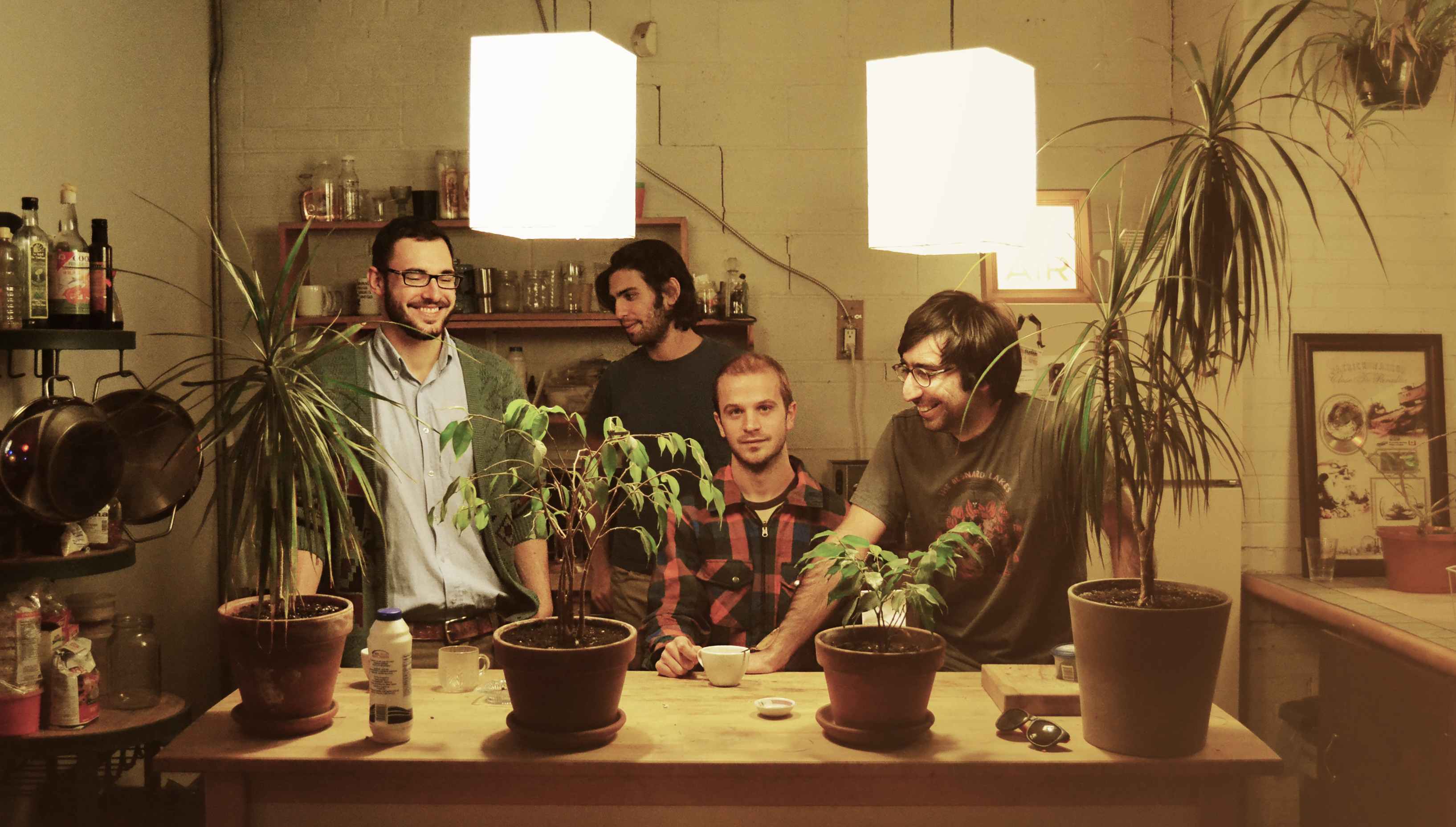Peeking out of the ocean, sitting almost directly at the mid-point between Asia and North America, is a spec on the map called Wake Island.
In a “moment of despair” while aimlessly traveling the globe via Google Maps in search of inspiration for a new band name, guitarist

Nadim Maghzal happened upon the tiny landmass, deeming it worthy of becoming the group’s namesake. Symbolically, it was too perfect to leave behind.
Wake Island’s roots are split between Lebanon, Canada, and the U.S., making for a cultural soup of epic proportions. With vocalist Philippe Menasseh and Maghzal hailing from the East, bassist Derek Koziol from America, and drummer Evan Tighe from Canada, finding musical common ground was an ongoing challenge at the start of Intensive Care – the project that preceded Wake Island, with Jonathan Parsons on drums at the time.
“When we started writing music, it was all over the place, and that’s natural,” said Maghzal. “Everyone was trying to put in their own idea of what was cool and what was not. Being from such different cultural points, obviously, the result was a mess.”
Having spent the first 18 years of their lives in Lebanon, Maghzal and Menasseh were exposed almost exclusively to Britpop and European rock and roll, given the prevalence of MTV Europe as opposed to its Western counterpart. When those foreign influences paired with the other members’ backgrounds from the North American music scene, the result was friction and vexation.
“Those were the hard years,” said Maghzal, giving a nod to the days of Intensive Care. “Everything was difficult, from booking a show to writing a song. There was always head-butting. Everyone was so sensitive. Everything we said had to be calculated not to offend anyone.”
With the progression of time came closeness between the bandmates, newfound understandings, a new drummer, and the identity shift from Intensive Care to Wake Island. In the wake of Tighe’s induction, the band spent five months in the studio on hiatus from recording. Instead, they were jamming, finding their footing and establishing a cohesive sound.
“The word is compromise. That’s how you get closer to people,” explained Maghzal. “I love being wrong. It means that I’ve learned something.”
Thanks to its motley origins, Wake Island is naturally able to transcend and breathe new life into the often hackneyed sound of indie rock.
“We always have an outsider’s perspective,” he said. “We see [music] with fresh eyes – we’ve acquired this culture [by moving to Montreal], but we never make an effort to fit any mold. Everything we make, including the music, we’ve never made compromises to make the music sound like what it ‘should’ sound like.”
Regardless of the group’s detached perspective, their willingness to stay true to the ideologies behind the genre remains intact.
“Typical indie rock is this whole idea of doing everything yourself,” said Maghzal.
Currently putting out a record – It Takes Time to be Uncomfortable is being released on Feb. 16 – the band is taking care of all preparations, from hand-making the tickets, stickers and T-shirt designs to booking shows and manning the website. The organic, hands-on mentality that Wake Island has gladly adopted is not unique to indie rock, Maghzal noted, but a characteristic of rock music that has been prevalent since its inception.
“This genre has constantly kept defying its own classification,” he said. “There have been generations of musicians – if you listen to rock in the ’00s, its different than the ’90s, and the ’80s. It’s all rock: it’s the idea of, ‘We’re fucking unhappy with this, that’s shit, we’re going to do this instead’. I think all good rock bands are driven by this attitude: the do-what-you want, do-it-yourself attitude.”
It Takes Time to be Uncomfortable aims to reflect the volatile period that Wake Island worked through in its initial stages.
“If you don’t put yourself in an uncomfortable situation where there’s tension, you never learn,” said Maghzal. “There’s never any sense of reward. You never progress, you just stay where you are.”
Immersed in conversation touching on familiar ideas of discomfort while on tour in Koziol’s native Boston, the bandmates came across an old photo of him as a child while visiting his house.
“When we saw the picture, we were like, ‘This is the album cover, this makes total sense’,” said Maghzal. “You have a kid who’s clearly a kid from the ’80s or ’90s, where he had this promise that he was going to live in a serene world where everything was going to be nice and perfect.”
Enter the concept of discomfort. Nowadays, he explained, people are overwhelmed and confused, much unlike the idealistic vision of the future that people had at the time when the photo was taken. “That picture represented this illusion that people in [that era] had that the future was a place that would be better. We ask ourselves, is it really better, and how can life be improved? How can we fix things?”
Reflecting upon the trials and tribulations that riddled Wake Island’s past and drinking in present-day homegrown success, Maghzal is able to sum up his feelings in one simple phrase: “Wow. We made it.”
Wake Island plays Casa Del Popolo on Feb. 16 at 9 p.m. Tickets are $10.




